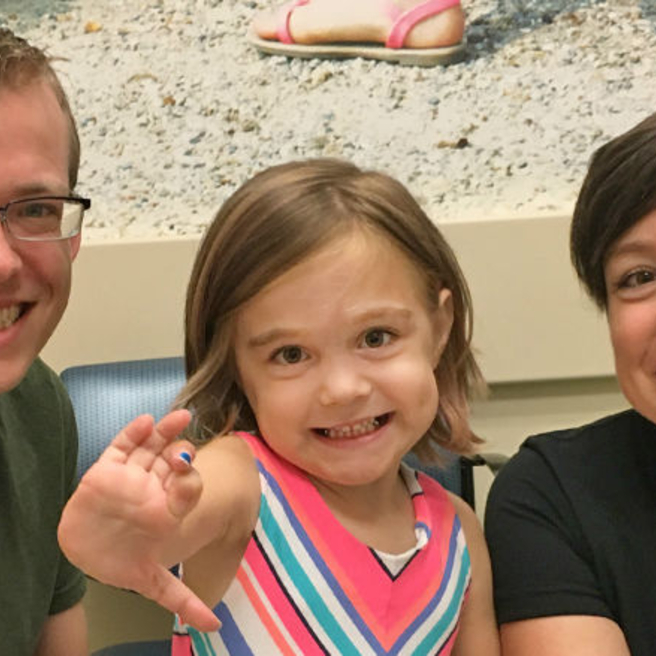What is acute flaccid myelitis (AFM)?
Acute flaccid myelitis (AFM) is a polio-like illness that affects the nerve cells (motor neurons) in the gray matter of the spinal cord. It is thought to be due to a viral infection.
Children with AFM have acute (rapid) onset of flaccid (floppy) paralysis, usually in an arm or leg. They may also have trouble moving their face or trouble swallowing. This weakness may progress to weakness of the muscles that control breathing, so seeking care for a child who is developing weakness is important.
AFM is rare, but an increasingly recognized cause of paralysis, occurring primarily in children. In recent history, AFM has been observed in clusters that seem to occur every two years. The first notable increase occurred in 2014, with additional spikes in 2016 and 2018.
Signs and symptoms of AFM
AFM symptoms include:
- Sudden arm or leg weakness
- Difficulty swallowing
- Slurred speech
- Facial weakness or drooping
- Loss of or weakened reflexes
- Headache
- Neck or back pain
- Bowel/bladder changes
- Respiratory symptoms (difficulty breathing)
Causes of AFM
Recent increases in AFM have been linked to the virus enterovirus D68. There are other viruses that may rarely cause AFM, including other enteroviruses, West Nile Virus (WNV), and adenoviruses.
Testing and diagnosis of AFM
A diagnosis of acute flaccid myelitis can be made with the observation of weakness of the limbs, decreased reflexes and poor muscle tone on exam. Evidence of injury to the spinal cord can be confirmed using a magnetic resonance imaging (MRI) scan. A distinctive pattern is seen in the spinal cord, with a butterfly-shaped pattern of abnormality affecting the gray matter. Cerebrospinal fluid (CSF) testing is typically done to search for infections and rule out other causes.
Treatment for AFM
To date, there have been no controlled studies of medical treatments for AFM. Intravenous immunoglobulin (IVIG) may be used to try to build up the body’s resistance to viruses. Medications typically used for the treatment of transverse myelitis (TM), including steroids and plasma exchange, have been tried in AFM with mixed results.
The key to treatment of AFM is early initiation of physical and occupational therapy (PT and OT). Early intervention may begin to restore function to affected limbs and improve daily functioning, even if it is not possible to regain full muscle function. Patients can continue to improve with PT and OT months to years following their initial illness. Some patients benefit from surgical interventions such as nerve or tendon transfer.
Outlook for children with AFM
The outcome for children with AFM is variable. While most reports suggest that patients regain some strength over time, many do not recover full function: the most involved extremity (arm/leg) is generally the least likely to recover.
Why choose CHOP
At Children’s Hospital of Philadelphia (CHOP), your child will see experienced team of experts who specialize in conditions associated with inflammation of the brain and spinal cord such as AFM. We are involved with national and international efforts to better understand AFM, its cause, and the use of various treatments and therapies.
CHOP’s pediatric neurologists partner with other specialties across the hospital, such as physical therapy, occupational therapy, orthopedics, pulmonary, pain management, and neuropsychiatry to coordinate your child’s care as necessary.
Research
At Children’s Hospital of Philadelphia, we are actively engaged in research to better understand the function and causes of AFM and to identify more effective treatments.
If you or your child are interested in participating in or learning more about our studies, please contact our team at brainresearch@chop.edu.
Resources to help
Pediatric Multiple Sclerosis and Neuroinflammatory Disorders Clinic Resources
We have created resources to help you find answers to your questions and feel confident with the care you are providing your child.
Reviewed by Sarah Hopkins, MD, MSPH

